Multiple global studies show that the current situation of women in leadership positions is far from ideal. The World Economic Forum states that, at the current pace, it will take 217 years to achieve gender equality in job opportunities and salaries. Moreover, according to the World Bank, there is a $300 billion gap in access to credit faced by small businesses owned by women.
The importance of working for gender equality is undeniable. Even major international organisations such as the United Nations echo this and declare that the fulfilment of Goal 5 – Gender Equality – is necessary to achieve the remaining 16 SDGs (Development Goals). The major problems we face globally require the joint work of men, women and diversities. We cannot allow anyone to be left behind.
On the road to equality, it is necessary to ask ourselves about gender stereotypes, i.e. ingrained beliefs about what women and men are and should be like, because they play a major role in the gestation of inequalities and are formed at a very early age. They affect us silently, almost always imperceptibly, and tip the balance towards one option or another, even erasing options. Such is their importance that they influence fundamental decisions in our lives, for example, when choosing a career. Numerous studies around the world asked kindergarten and primary school children what they wanted to be when they grew up. Most girls drew teachers, hairdressers and doctors, while boys drew firemen, airline pilots and scientists. Here is our selection of projects that are breaking gender equality stereotypes:
- Value for Women social enterprise that researches and builds the capacity of organisations to promote gender equality in Africa, Eastern Europe, Asia and Latin America. Their new working models demonstrate that gender equality put into practice improves the individual and collective results of the organisations they have worked with.
- Como una Cabra, a business school made by women for women that provides the experience and closeness needed to make the process of owning one’s own business easier, safer and less lonely. At the same time, it focuses on Triple Impact Business, where the goal is to achieve a balance between economic, social and environmental aspects (hence also known as “Triple Balance”).
- We Connect International. A labour platform that connects large companies with independent women. Its function is to match local professionals with international employers. They connect and generate better results for all.
- Allwomen. A social enterprise formed by women that offers technology courses to bring more women into the world of artificial intelligence, today led by men. They combine coding, the binary system and HTML language with holistic transformation. In this company, desire and motivation are valued as much as the level of mathematics you have.
- Incubadora Feminista Latinoamericana was created as an empathetic and safe place that provides incubation and economic strengthening programmes to self-managed organisations and enterprises led by women and diversities. The objective is to strengthen them to achieve economic autonomy. To do so, they create and adapt conventional incubation tools, giving rise to methodologies that incorporate the gender perspective in a cross-cutting manner.
- Laboratoria is an education company that creates learning experiences to reverse the inequalities faced by women in accessing quality jobs in Latin America. Already more than 1800 women have completed the training, and around 80% of them are working in the labour market in vacancies related to the technology market. An “extraordinary success rate”, in the words of Barack Obama (former President of the United States).
- +Women in UX is a community of women passionate about User Experience. It was created to provide support to women who want to work in the area and to show the growing presence of women in the discipline.
- Chicas en Tecnología is a non-profit civil society organisation that has been creating free and open programmes and initiatives for teenage women since 2015 and currently reaches 18 countries in the region with different training options in technology, leadership and communication skills.
If you are interested in going deeper, we also take this opportunity to share with you some podcast episodes to strengthen our rights and break stereotypes:
- Gender equality champions in Latin America: an interview with Federico Restrepo from Impact Hub Medellín, Vianney González from la mano del Mono, John Paul Nuñez from Flora y Fauna.
- The keys to new leadership: responsible and inclusive: an interview with Katia Dumont, from the BMW Foundation.
- How to include a gender and diversity perspective in organisations: an Interview with Ana Inés Álvarez, Director of Fundación Avon para la Mujer, and Gabriela Ferreiro, Co-director of Libertate.
- Mum, when did your penis fall off? An interview with Rosa Almirall, promoter of Trànsit and Ashoka Fellow.
- All about bias and how to navigate it: an interview with Gènia Valls, professional development coach.


